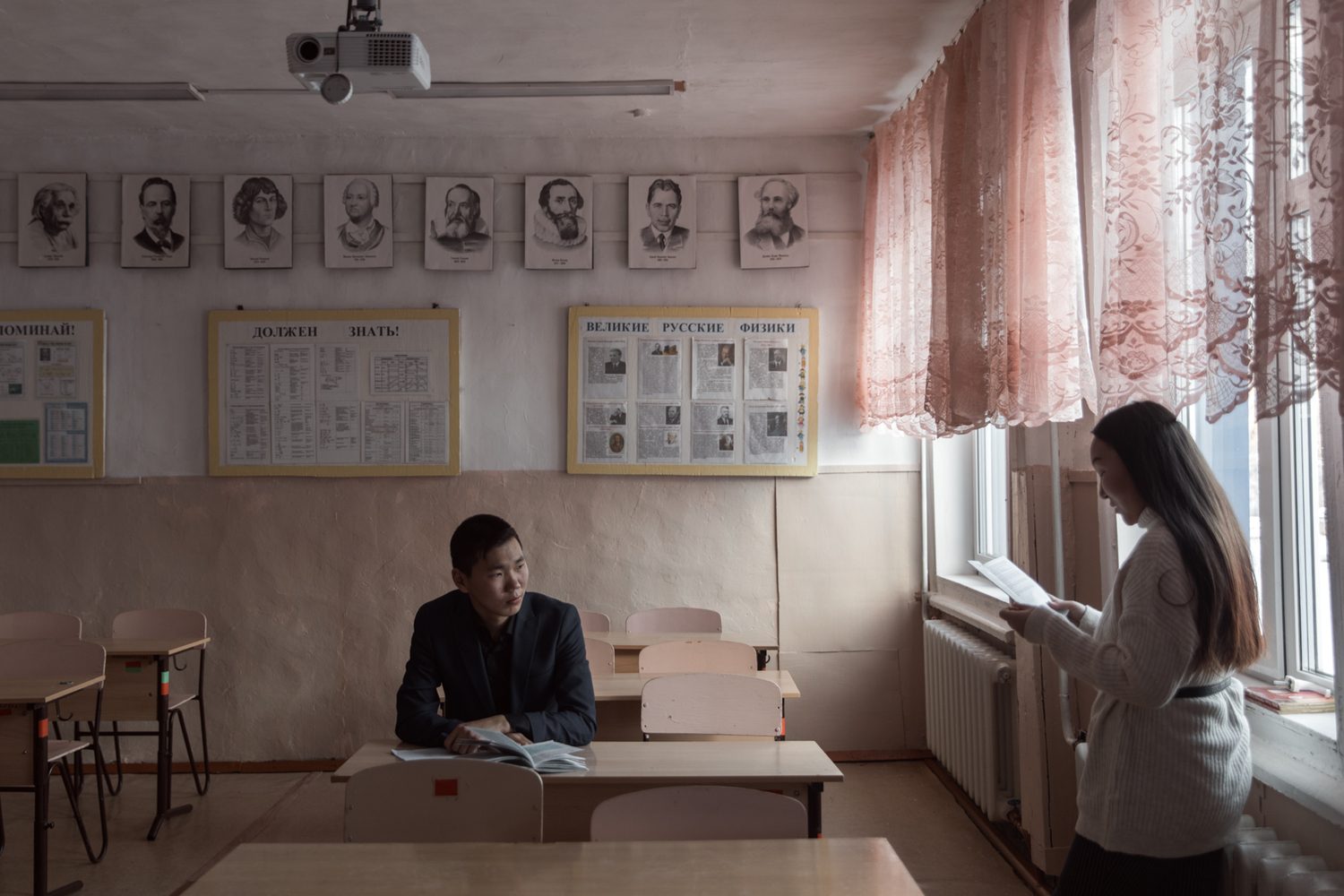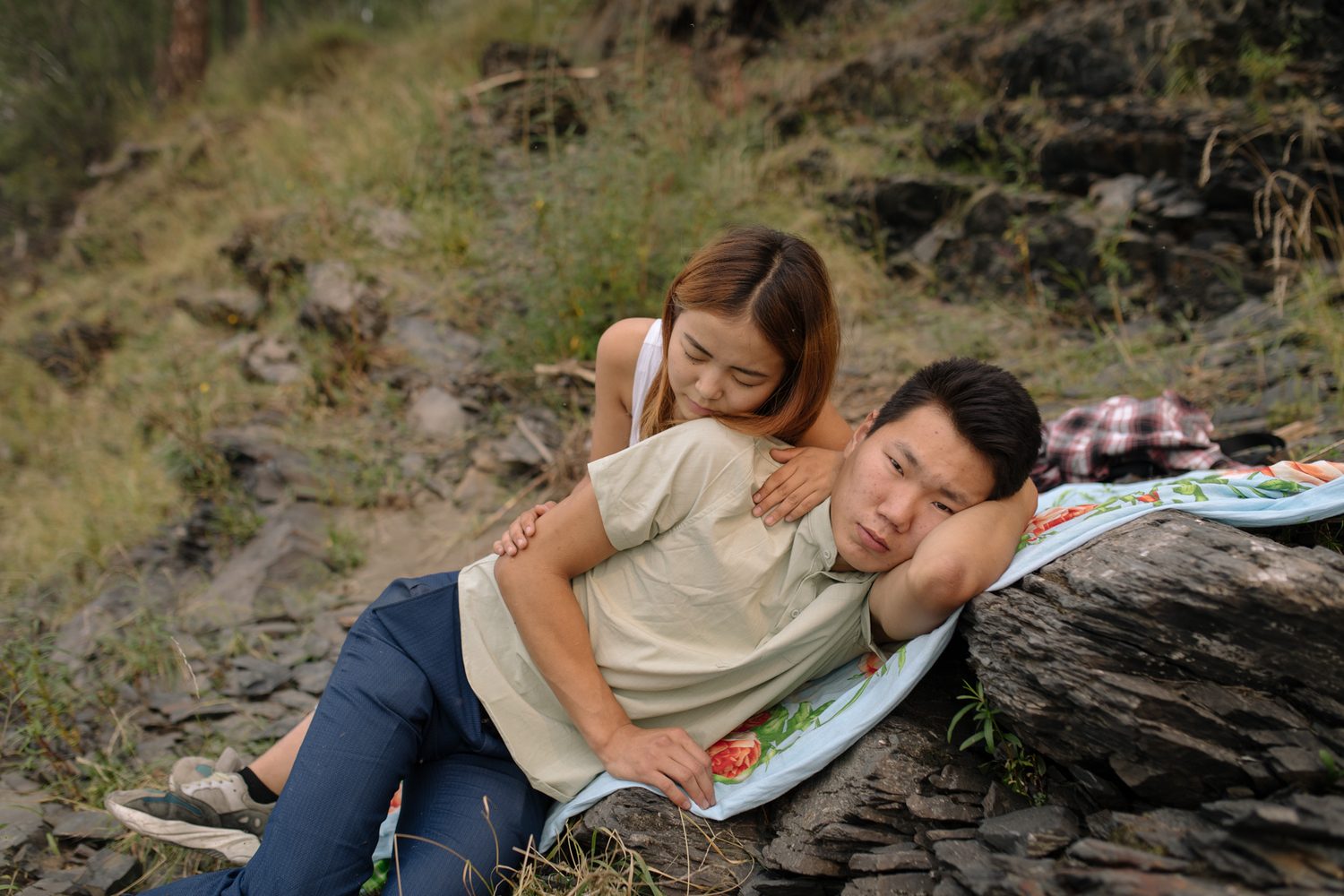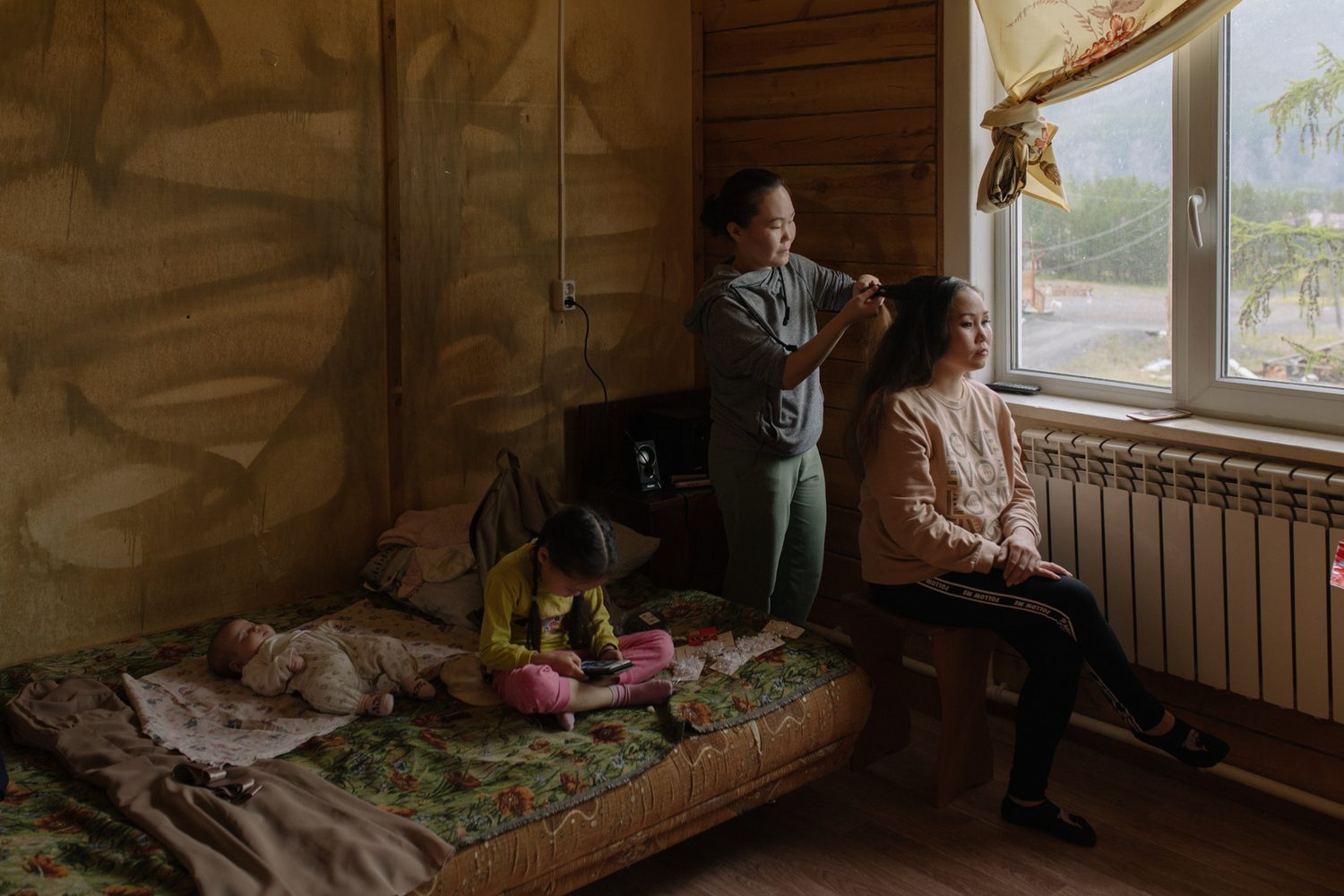Alexey Vasyliev was born and raised in Yakutsk. Located around 450 km south of the Arctic Circle in Russia, the port city is home to around 300,000 people who live through midwinter temperatures that regularly drop below −60°C. One would think it difficult for “normal life” to exist in a place so cold, but according to Vasyliev, his childhood was “probably not much different from children who live in warmer regions.” The frost never stopped him from playing outdoors, or trekking through the snow to meet friends or buy an ice cream.

Vasyliev has produced several documentary series about life in his hometown, as well as other remote regions in the far North. The 38-year-old photographer didn’t pick up a camera until around eight years ago. “I didn’t set myself the goal of becoming a photographer. In Yakutsk, there is not much entertainment for a young man. I just wanted to kill time,” he says. “I liked to walk around the city after work and take pictures on my phone of everything that seemed interesting. This could be anything: an ice-covered puddle on the street, an old bench in the park.”

These images of Yakutsk have been published by global outlets like The Guardian and National Geographic. Vasyliev continues to document his home city, and most recently his interests have drawn him to one of Yakutsk’s indigenous communities: the Evens. For hundreds of years, the Evens were known as the reindeer people, leading a nomadic lifestyle through breeding deer, hunting, and fishing. They largely lived off the land, until it fell under Soviet rule. The community moved from traditional lodgings into modern settlements, where they moved into cattle-breeding and agriculture to contribute to the Soviet economy. With this, their traditional way of life changed dramatically.

“I wanted to show how, due to the conditions of the modern global world, the lives of individual people are being restructured,” says Vasilyev, who wanted to document the challenges these communities faced in order to preserve their identity and culture. The deer was once a sacred animal for the Evens, but its significance is fading in the community’s collective consciousness.

In Vasyliev’s images, the animal appears as a symbol rather than an intrinsic part of the Evens’ lives. We see statues of deer, tapestries with deer motifs, and most disturbingly, a dead deer, which “symbolizes the slow disappearance of identity and traditional values.” According to Vasyliev, the community continues to raise deer, but the animals are merely seen as a resource. The younger generation are more interested in pursuing a career in the city, rather than upholding the work of their ancestors. “For the older generation, this means the disappearance of the Evens as a people. No deer, no Evens,” says Vasyliev.

There are many more stories to be uncovered in the coldest city in the world, and Vasyliev will continue to seek them out. “I was born here, raised here, I live here, and I will probably die here,” he says. As for the Evens, their story of survival will continue. “I would like to believe in a better future,” the photographer says.
This work was one of the winners of the LensCulture Emerging Talent Photography Awards 2023. Discover all 25 winners.










